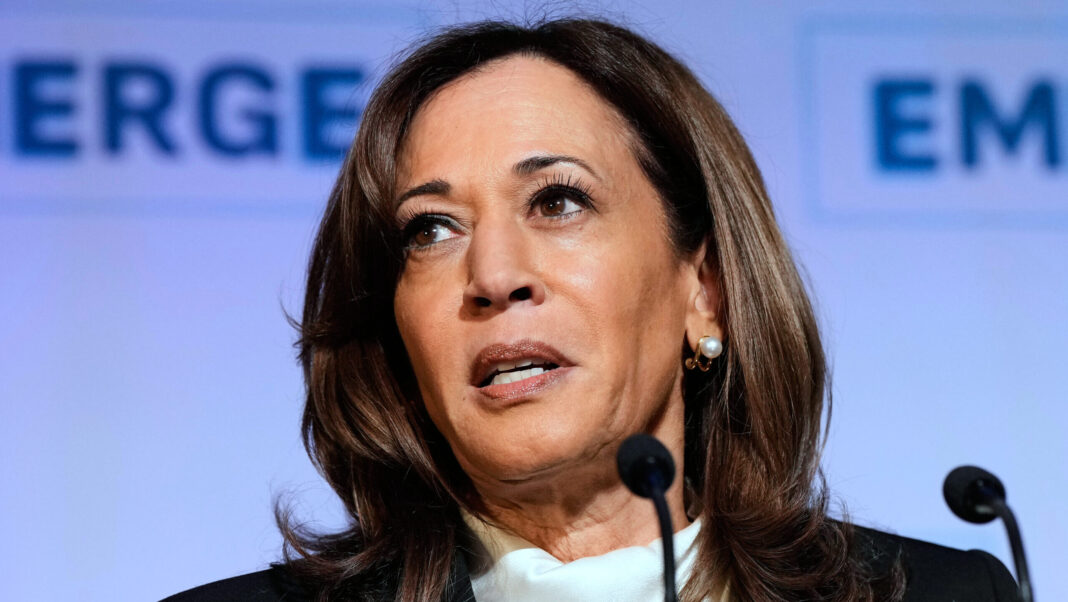Kamala Harris Reflects on Her Role in Biden’s Re-election Campaign
In a recent interview with Rachel Maddow on MSNBC, former Vice President Kamala Harris opened up about her regrets concerning her hesitance to address concerns about President Joe Biden’s decision to run for a second term. Her candid remarks have stirred discussions surrounding the dynamics of leadership within the Democratic Party, especially in light of the challenges faced during the 2024 presidential race.
A Personal Responsibility
During the interview, Harris expressed that she felt a unique responsibility to voice her concerns regarding Biden’s age, particularly when many Americans were openly questioning his capability to serve. “I have and had a certain responsibility that I should have followed through on,” she stated, alluding to the complexities woven into their professional relationship. Such conversations about fitness for office, especially between a sitting president and his vice president, can significantly impact political landscapes and personal relationships.
Insights from Her Book, “107 Days”
These reflections were further elaborated in her book, “107 Days,” where Harris shares her experiences navigating the tumultuous waters of Biden’s presidency. In the book, she recounted how decisions regarding re-election were often framed as personal matters between Joe and Jill Biden, rather than as collective decisions involving the broader Democratic leadership.
Harris starkly identified this approach as potentially reckless. “The stakes were simply too high. This wasn’t a choice that should have been left to an individual’s ego, an individual’s ambition,” she wrote, emphasizing the collective responsibility of leadership in such critical times.
The Fear of Self-Serving Motives
Interestingly, Harris admitted that her hesitation to advise Biden against seeking re-election stemmed partly from concerns about perceptions. She feared her voice might be seen as self-serving, given her own aspirations and their prior competition for the party’s nomination in 2020. “It would come off as completely self-serving,” she remarked, encapsulating the delicate balance of loyalty and ambition that defines political relationships.
Concerns for Biden’s Campaign Viability
While Harris asserted she was not concerned about Biden’s day-to-day capabilities, she harbored doubts regarding his effectiveness on the campaign trail. She noted signs of frailty during critical moments, particularly referencing moments of verbal stumbles and a perceived decline in vigor. These observations suggest that her worry wasn’t merely about Biden’s age but also about the practical realities of a rigorous campaign lifeline.
Plans for Biden to run a White House-centric campaign with Harris as a more active campaigner were put in place; however, an ill-timed debate against Donald Trump raised alarm bells for Harris. Reflecting on this, she described how these instances contributed to her growing concerns about his ability to galvanize support effectively.
Future Political Aspirations
As Harris approaches her 61st birthday, observers remain curious about her future in politics. When questioned about her potential candidacy for the presidency in 2028, she stated, “that’s not my focus right now.” This remark highlights an intriguing pivot away from future ambitions, especially after declining an opportunity to run for governor of California.
Instead, she emphasized her support for Governor Gavin Newsom’s proposal to redraw congressional districts in response to Republican strategies, reflecting her ongoing commitment to safeguarding Democratic interests.
Criticism of Trump and Leadership Dynamics
Throughout the interview, Harris did not shy away from addressing Donald Trump, characterizing him as acting like “a tyrant” and comparing his tactics to those of “Communist dictators.” This sharp criticism underscores the ongoing tension within American politics, positioning her as a firm opponent to Trump’s influence.
Moreover, Harris pointed to a concerning silence from business leaders, accusing them of failing to speak out against the current administration’s tactics. Her call for greater responsibility among industry leaders highlights an emerging theme in her political philosophy: the need for collective action in confronting perceived threats.
Navigating Identity Politics
Maddow also broached a provocative passage from Harris’s book regarding her initial feelings about selecting Pete Buttigieg as her vice-presidential pick. Harris revealed that her reservations stemmed from fears that America was not ready for a ticket featuring both a Black woman and a gay man. While she clarified that her caution was not rooted in prejudice, her insights reveal the nuanced considerations that leadership often entails.
Buttigieg’s reaction to this revelation was one of surprise, as he emphasized his belief in the American electorate’s capacity to embrace diverse leadership. This exchange showcases the evolving discourse around identity politics in the Democratic Party and how it shapes candidate selections.
A Journey of Reflection
Kamala Harris’s reflections present a compelling narrative about the complexities of political leadership, the nature of responsibility, and the interplay of personal ambition with collective decision-making. As she navigates the aftermath of the 2024 election, her insights serve as a window into the ongoing dialogues within the Democratic Party and the challenges it faces moving forward.



